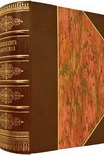A Fine Madness by Alan Judd (free novel 24 .TXT) 📗

- Author: Alan Judd
Book online «A Fine Madness by Alan Judd (free novel 24 .TXT) 📗». Author Alan Judd
There you have it, sir. That is the record. I believe it is essentially what happened. There is no reason to assert otherwise. But I can add to it somewhat, not only through what I have already told you about how Christopher came to be there, but through my subsequent investigations on behalf of Sir Robert.
I continued in his employ for some time following the finding that Frizer had killed in self-defence and his subsequent pardoning, as had happened some years before with Thomas Watson and Christopher. Sir Robert still wanted to know what they discussed that day, to be as sure as possible that Poley was not swinging to Essex. He tasked me with questioning each of them.
Naturally, he wanted it done without alerting them to his interest, if possible without mentioning him or Essex. ‘Do it as one grieving for the loss of your friend,’ he said. ‘He was after all the man who introduced you to your wife. They know of your official relations with him, of course, but those are far in the past. You admire his verses, you wish to compose a memorial to him, to commemorate your friendship.’
There was in fact truth in that, as perhaps you have sensed, sir. I feel his loss still. He was a presence in my life like no other. It affected Mary grievously, she wept for days. Only when he was gone did I realise how often I engaged in an imaginary dialogue with him, questioning, arguing, construing his responses. His Kentish burr was ever in my head, querying my opinions, teasing me for my judgements. Thus do we keep the dead alive, giving them life after death. They live in us.
How did I hear of it? Late, the news reached me late, he was dead and buried before I heard anything of it. Few knew of our connection, I suppose, and those that did probably thought of it as a professional relation, not a friendship. I had it from Nicholas Faunt who had run into Poley after the inquest. Nicholas, like many of us who had served Mr Secretary, was seeking employ and called at my house because he had heard I was sometimes engaged by Sir Robert Cecil and wished me to mention him.
‘Please assure him I am of sound Puritan stock, a Canterbury man and a scholar of Corpus Christi, Cambridge,’ he said. ‘A lineage trusted by Mr Secretary and now by Sir Robert, too, I have heard. Though we are one fewer now, Robert Poley tells me.’
‘A defection?’
‘No, a death. The actor or play-maker who did some work for us in Mr Secretary’s time. You knew him. Morely or Marley or some such name.’
‘Christopher? Christopher Marlowe?’
‘The very man. Killed brawling, Poley said. But, tell me, are you much engaged with Sir Robert? Does he heed what you say? I would serve him as I did Mr Secretary, if he would have me.’
I was too shaken to heed much of what else Nicholas said. He had not asked Poley for details, being more concerned with gaining a position for himself. All he could add was that Poley too was engaged with Sir Robert and worried that his involvement in the brawl might prejudice his reputation for discreet behaviour.
Later, I did mention Nicholas Faunt to Sir Robert, who did engage him. Nicholas served him well, I believe, gaining in discretion as he gained in years.
As for my own discreet enquiries on Sir Robert’s behalf, I started with Frizer, calling on him at Scadbury one fine July day. He had spent most of June in prison until pardoned by the court. Sir Robert contrived reason for me to visit, sending me with letters for Sir Thomas. The carp in the moat were basking in the sun and Sir Thomas was conveniently out hunting, which meant I had to wait and had time with Frizer alone. He said, of course, that I could leave the letters with him but I said my orders were to hand them over in person. I tried to flatter him by adding that otherwise I should have been happy to, since Sir Thomas obviously trusted him in matters of business, but that I thought these letters concerned Court appointments which the Court officials who appointed me wanted kept close.
Frizer therefore knew I still had important connections and so was wary enough to be civil, which





Comments (0)